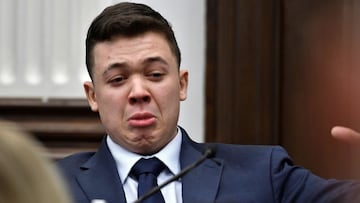US NEWS
Kyle Rittenhouse: what is the difference between reckless and intentional homicide?
The Wisconsin teenager is on trial for the homicides of Joseph Rosenbaum and Anthony Huber, as well as the wounding of Gaige Grosskreutz.

The Kyle Rittenhouse case is making its way through court in Wisconsin as prosecutors try to assert the case against him.
He has been charged with first degree reckless homicide in the death of Joseph Rosenbaum, 36, and first degree intentional homicide in the death of Anthony Huber, 26 and the wounding of Gaige Grosskreutz, 27. The shootings occurred on 25 August 2020 after protesters took to the streets to demand justice for Jacob Blake, who had been shot seven times by a police officer in the town earlier that week.
The teenager has pleaded not guilty to charges of reckless and intentional homicide and insists that he acted in self-defense. The distinction is important, as it could mean the difference between a murder charge and potentially avoiding dozens of years in prison.
What is the difference between the two?
According to Nicholson Goetz & Otis law firm, the two degrees of reckless homicide are:
- First-degree reckless homicide: If you allegedly caused another person’s death by showing an “utter disregard for human life,” you can face first-degree reckless homicide and a Class B felony.
- Second-degree reckless homicide: A Class C felony. The prosecutor must show that you acted recklessly and your reckless behavior caused someone else’s death.
The distinction then is whether the prosecution can convince judge and jury that a killing was with intention to kill, or not. In the United Kingdom the difference is the same but with different wording, between murder, intentional homicide, and manslaughter, reckless homicide.
What has happened in the Kyle Rittenhouse trial today?
The biggest development of Wednesday was the likelihood of the judge declaring a mistrial rapidly rising. This was because prosecutor Thomas Binger attempted to establish that Rittenhouse had heard more than a week of testimony and that may have had an influence on his own testimony. The judge criticized Binger for doing so, saying the questioning was more commentary on Rittenhouse's right to silence during the earlier proceedings and called the prosecutor's actions "borderline."
Defense attorney Corey Chirafisi asked for a mistrial with prejudice, meaning if the judge granted the motion, prosecutors could not refile the charges. While the judge has yet to make a ruling on this, it could mean the end of the trial with no outcome and crucially no justice.






